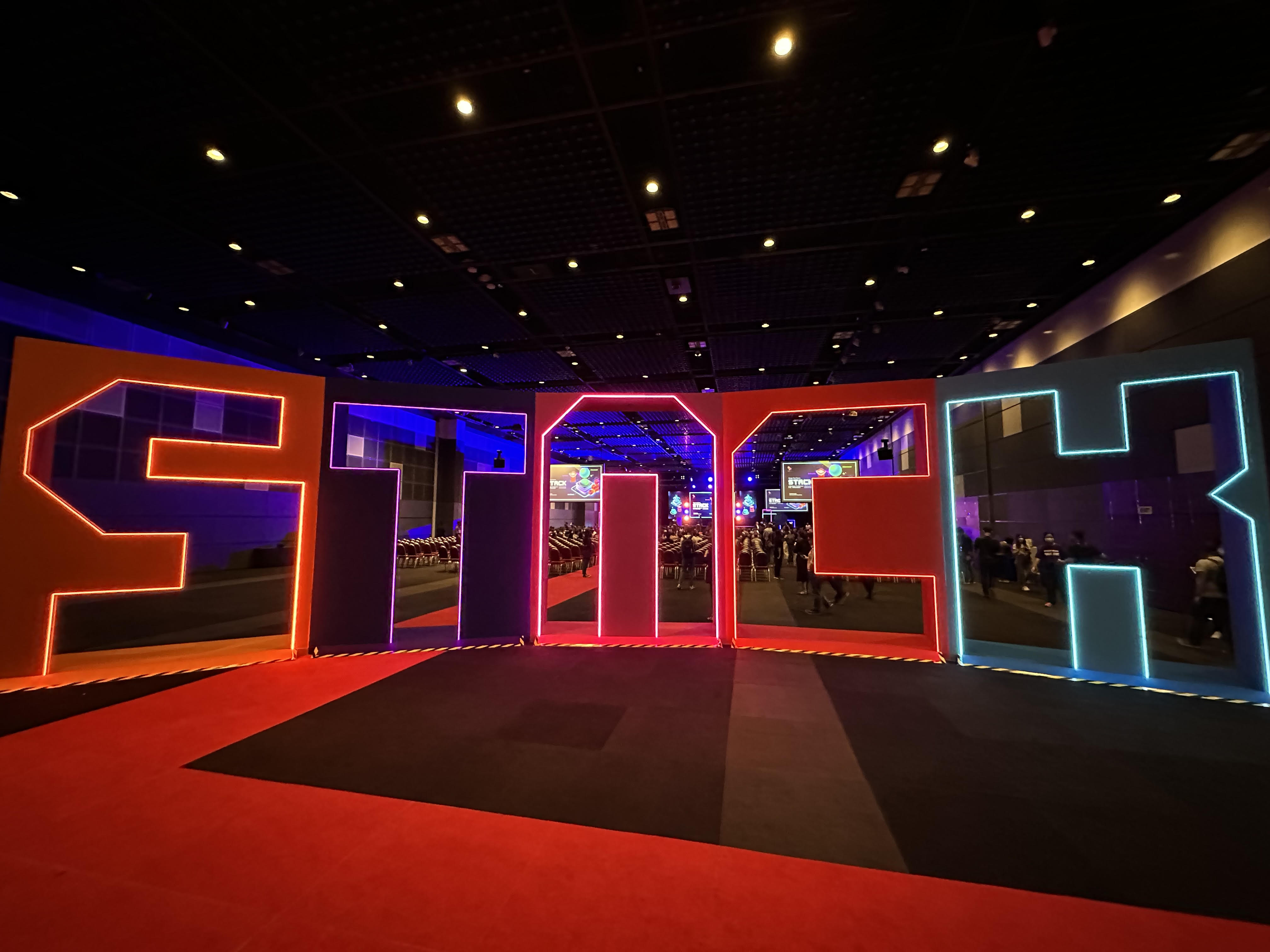STACK Developer Conference 2022: Hybrid event hosts over 2,500 attendees

Welcome to STACK 2022!
Members of the tech community across the public and private sectors gathered in November for the largest Government-led developer conference – STACK 2022.
With the opening up of Singapore following the easing of pandemic restrictions, the event returned in a hybrid format with both in-person and online participants. Over 2,500 attendees took part in keynote sessions, plenaries, panel discussion, pre-conference technical workshops and lightning talks from 14-16 November.
Centred on the theme “Design your Future”, key industry experts shared insights and covered topics such as building digital trust, cloud technology, datafication, fail-safe app development, smart city, and tech culture and careers.
Minister for Communications and Information Josephine Teo, delivered the opening address on the first day of the conference, noting that in Singapore today “99 per cent of all transactions between citizens and government can be completed digitally from end-to-end, anytime and anywhere”.
This milestone was reached ahead of the target set in 2018 to have digital services for up to 95 per cent of transactions by 2023, added Mrs Teo, who is also the Minister-in-charge of Smart Nation and Cybersecurity.
Cloud and government services
Indeed, one of the major themes of STACK 2022 was the continued digitalisation of government services. The modernisation of tech infrastructure through cloud platforms has played a major role in this, said Mr Paul Tatum, the executive vice president of solution engineering for global public sector at Salesforce.
SaaS, or software as a service, has enabled governments and industry players to add value quickly by rapidly deploying applications and getting them out to their users, he said at his keynote on the benefits of SaaS and PaaS (platform as a service).
He added that his trip to Singapore has been an “eye opener” in terms of seeing digital government services in action, from the moment he landed in the country and went through immigration at the airport.
“It is world class… and an example for the world on what other governments should be doing,” he said.
Trust in the world of big data
Another important talking point at the conference was the impact of big data. With data collection growing ever bigger, people have rightfully become concerned about its implication on safety and privacy. Big decisions also increasingly rely on online data.
In such a world, trust is crucial, said Dr Rebecca Parsons, chief technology officer at Thoughtworks, at her keynote, and people must have the assurance that data driven insights are unbiased and their data is secure. Systems and policies must be mutually reinforcing to ensure that users can interact confidently in the digital world.
“Our systems are the realisation of our policies. And it doesn’t matter what the policy says if our system does something different. So we need to ensure the systems are doing what we say through our policies that we want them to do,” she said.
Talent and jobs in today’s hiring climate
The pandemic has sparked global trends such as the great resignation and quiet quitting, pushing the topic of careers to the forefront in the last two years. And with major tech companies restructuring their workforce recently, the subject has received renewed attention.
This backdrop made for a lively conversation on talent and workplace culture at the panel discussion. The panelliest had a couple of tips for people who are starting out in their tech careers.
Mr Noah Pepper, a GovTech Board member, stressed the importance of finding a career that is meaningful to oneself. Such a job will mean one enjoys the experience of working every day and is far more sustainable in the long run.
“Rather than try to optimise what other people think you should be doing or how to get the best pay package, you will end up happier, do better, and advance your career faster.”
Mr Frank Koo, head of Asia, talent and learning solutions at LinkedIn, emphasised that continual skills upgrading is needed for career longevity in today’s rapidly evolving economic and technology landscape.
One should develop a core set of skills but always be on the lookout for new skills to learn. Workers need to have a growth mindset and be willing to take “intelligent risk”, he said.
“Intelligent risk is about understanding what skills and traits you can bring to the table. You might not have all the skills for a job opening and be a 50 to 70 per cent fit. But you must be willing to take on new responsibilities so you can learn more, stretch yourself beyond your comfort zone,” he said.
He noted that hiring managers nowadays are also looking beyond qualifications and past experiences, focusing instead on skills and traits.
“We know there are no plug and play workers. So many hiring managers are open to hiring for potential – People who are a 50 to 70 per cent fit, and then help them develop their skills and capabilities so that they can do the job well,” he said.
Cheers for the return of the physical conference
Conference speakers and attendees alike cheered the return of the physical event at Suntec after two years of online-only events.
Many noted that such gatherings were critical for industry players to break out of their daily routine and interact with others from different technical experiences, given that developers usually come in contact with others in the same organisation during their day to day work.
Chance encounters and serendipitous conversations are also some of the more valuable experiences that online conferences can’t provide, they added.
“I think the energy is palpable. And you feel like other people are excited about the same things that you are excited about. These events create an oppotunity for people to get to know one another and eventually to work together.” said Microsoft’s Paul Lorimer.
To catch up on keynotes and panel discussions you may have missed, head here to check out records of the conference proceedings.
https://www.tech.gov.sg/media/technews/stack-developer-conference-2022
